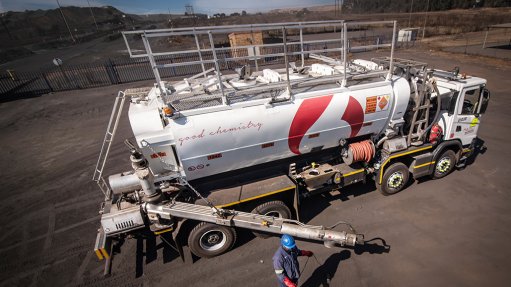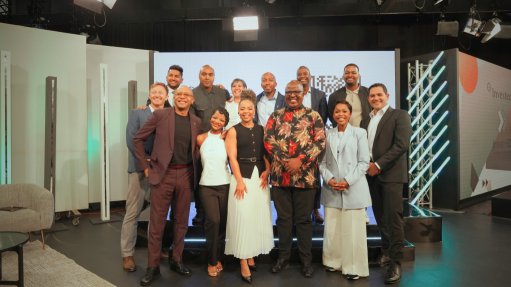Musk and Gates geniuses? I think not
The other day JP and I were chewing the fat. I mentioned to JP that Elon Musk’s SpaceX rocket had gone up on the launch pad with a fearful scene of destruction. I also said that Musk was saying that it was not an explosion as much as it was a “fast fire”.
I said I was not too sure about this; I had watched the video (corrected to synchronise the sound) and it seemed pretty much like an explosion to me. JP said that he thought that Musk was a genius and I said I really could not agree with him.
He asked if I realised what a genius car the Tesla was. I said the Tesla was basically a motor driven by a 22 kW variable-speed drive running off a whole lot of cellphone batteries connected in parallel and series, all made up like a lovely car body. I said that I also could develop an electric car if the US government gave me $4.9-billion as it did Musk. (Do not get me wrong; this amount is not in cash – it is the value of a variety of government incentives, including grants, tax breaks, factory construction, discounted loans and environmental credits.)
The real electric car hero is Alan Cocconi, whose first car, the AC Propulsion tzero, appeared in 1992. The genius of the design was evident to me when I drove the Eskom-owned version of the tzero. No variable-speed drives in those days – just an electronic box with transistors the size of hockey pucks. The very clever idea was to use a drive motor rated at 400 Hz instead of 50 Hz. Motors rated at 400 Hz are commonly used in passenger aircraft and are so much lighter than 50 Hz motors – thus, you could get a 22 kW motor with an aluminium body weighing a fraction of a 50 Hz 22 kW motor, making the car very light.
Of course, an issue with a 400 Hz motor is that it runs at about 18 000 rpm. Not a problem – Cocconi ran it through the second gear of a Honda gearbox to the drivetrain. This is pure genius. If we remember that Musk took a ride in a tzero before joining Tesla, one must wonder how much, if any, inventive genius was of his own doing. But Cocconi was a genius.
So, was Bill Gates a genius? Well, I guess we know all about Microsoft and that it started in 1974. Microsoft adapted a computer, the Altair 8800, to run with the programming language BASIC Interpreter. But it did not invent BASIC, which was invented in 1964 by John G Kemeny and Thomas E Kurtz, who wanted to enable students in fields other than science and mathematics to use computers. At the time, nearly all use of computers required writing custom software, which was something only scientists and mathematicians tended to learn. The genius of this language is that it is very simple and very powerful.
So, Gates created the personal computer, not so? Not so. It was a company called Wang, which was founded by Dr An Wang. The most identifiable Wang minicomputer performing recognisable data processing was the Wang 2200, which appeared in May 1973, one year before Microsoft started trading.
Everybody thought mainframes were the answer, but Wang thought otherwise. But Microsoft cut a deal with IBM for a standalone PC and Wang went slowly into oblivion. Wang was a genius – in my opinion, Gates just followed.
I have been trying to think who in modern times, say, the last ten years, is a genius. I cannot think of anybody. People shout iPad and iPod. These are not really the work of a genius. Miniaturisation of electronic storage devices has been going on for a very long time. Not a genius idea. On the other hand, I (and probably many others) do have some genius ideas. The problem is that we do not have the time or the money to invest in them. South Africa should have a fund to assist people to develop things – away from universities. Hey, send me $4.9-billion, please.
Article Enquiry
Email Article
Save Article
Feedback
To advertise email advertising@creamermedia.co.za or click here
Press Office
Announcements
What's On
Subscribe to improve your user experience...
Option 1 (equivalent of R125 a month):
Receive a weekly copy of Creamer Media's Engineering News & Mining Weekly magazine
(print copy for those in South Africa and e-magazine for those outside of South Africa)
Receive daily email newsletters
Access to full search results
Access archive of magazine back copies
Access to Projects in Progress
Access to ONE Research Report of your choice in PDF format
Option 2 (equivalent of R375 a month):
All benefits from Option 1
PLUS
Access to Creamer Media's Research Channel Africa for ALL Research Reports, in PDF format, on various industrial and mining sectors
including Electricity; Water; Energy Transition; Hydrogen; Roads, Rail and Ports; Coal; Gold; Platinum; Battery Metals; etc.
Already a subscriber?
Forgotten your password?
Receive weekly copy of Creamer Media's Engineering News & Mining Weekly magazine (print copy for those in South Africa and e-magazine for those outside of South Africa)
➕
Recieve daily email newsletters
➕
Access to full search results
➕
Access archive of magazine back copies
➕
Access to Projects in Progress
➕
Access to ONE Research Report of your choice in PDF format
RESEARCH CHANNEL AFRICA
R4500 (equivalent of R375 a month)
SUBSCRIBEAll benefits from Option 1
➕
Access to Creamer Media's Research Channel Africa for ALL Research Reports on various industrial and mining sectors, in PDF format, including on:
Electricity
➕
Water
➕
Energy Transition
➕
Hydrogen
➕
Roads, Rail and Ports
➕
Coal
➕
Gold
➕
Platinum
➕
Battery Metals
➕
etc.
Receive all benefits from Option 1 or Option 2 delivered to numerous people at your company
➕
Multiple User names and Passwords for simultaneous log-ins
➕
Intranet integration access to all in your organisation


















